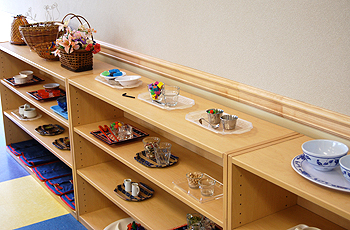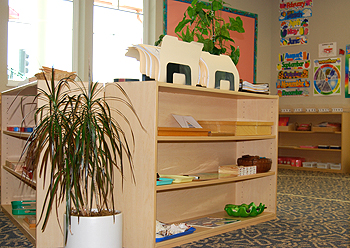Back Bay Montessori School Frequently Asked Questions
What is a Montessori School?
A Montessori school is a special place for the child to cultivate his/her own natural desire to learn. The Montessori philosophy for child development was first formulated by Dr. Maria Montessori, an Italian physician, during the early 1900s. Dr. Montessori’s program for education focuses on the natural development of the whole child from birth through maturity. Children 2 to 6 years of age are the focus of most Montessori educational programs. The concept allows children to experience the joy of learning at an early age and provides an environment in which intellectual, moral, creative, physical, and social growth flourish.
What is the Child’s Work?
Children have a sense of the worth and value of what they desire. They choose all activities eagerly and spontaneously, and become totally involved. The work process involves attaining skills, refining tastes, developing sensitivities, strengthening concentration, solving problems, building self-esteem, and achieving new insights.
What are “Sensitive Periods”?
Sensitive age periods are described as periods when the child shows unusual capabilities in acquiring specific skills. Another name for this phenomenon might be “formative years” in which a child is psychologically attuned to acquire given ideas or skills more readily than at any other period. Examples of the “sensitive periods” are for acquiring a sense of order, between 2 1/2 to 3 1/2 years of age for the average child, for precise movement and coordination, 2 1/2 to 4 years, for writing, 3 1/2 to 4 1/2 years and for reading and numbers, 4 to 5 years of age. Recent studies show that 80% of a child’s mental development is complete by the age of seven.
What are the Advantages of Ungraded, Mixed Age Classes?
A child can work with older children in one subject, younger children in another, and still have social interaction with children his or her own age. Mixed age groups permit younger children a graded series of models for imitation, and older children have the opportunity to reinforce their own knowledge by helping the younger ones.
Why are Montessori Children Generally More Self Confident, Outgoing and Self-Reliant?
Montessori is based on a profound respect for the child’s personality. The child works from his own free choice and is allowed a large measure of independence. This forms the basis of self-discipline. As each child progresses at his own pace and successfully completes the self-correcting exercises, he develops confidence in his ability to understand his accomplishments.
What is the Montessori Concept of Discipline?
Discipline is a prerequisite condition for learning. Montessori discipline is an “inner discipline” and inner control which the child develops from his or her own behavior and in conjunction with his or her home environment. Dr. Montessori noted that many so-called undisciplined children were really frustrated by the lack of proper stimulation and an inadequate opportunity to achieve. She noted that young people became happier and more self-controlled after a period of time in a Montessori class. They experienced challenging tasks which not only absorbed their energies, but resulted in a sense of achievement.
.gif)


